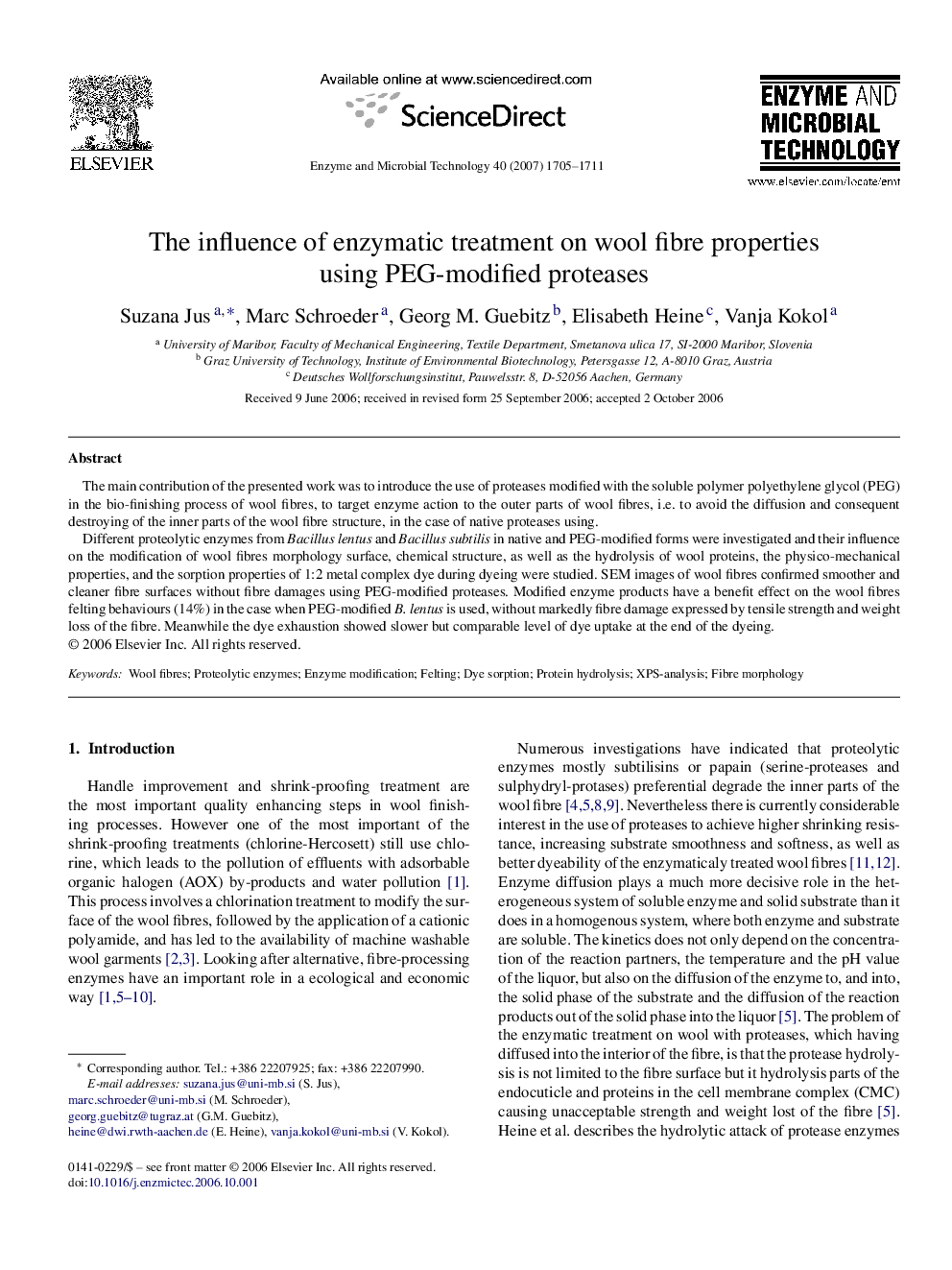| کد مقاله | کد نشریه | سال انتشار | مقاله انگلیسی | نسخه تمام متن |
|---|---|---|---|---|
| 18117 | 42712 | 2007 | 7 صفحه PDF | دانلود رایگان |

The main contribution of the presented work was to introduce the use of proteases modified with the soluble polymer polyethylene glycol (PEG) in the bio-finishing process of wool fibres, to target enzyme action to the outer parts of wool fibres, i.e. to avoid the diffusion and consequent destroying of the inner parts of the wool fibre structure, in the case of native proteases using.Different proteolytic enzymes from Bacillus lentus and Bacillus subtilis in native and PEG-modified forms were investigated and their influence on the modification of wool fibres morphology surface, chemical structure, as well as the hydrolysis of wool proteins, the physico-mechanical properties, and the sorption properties of 1:2 metal complex dye during dyeing were studied. SEM images of wool fibres confirmed smoother and cleaner fibre surfaces without fibre damages using PEG-modified proteases. Modified enzyme products have a benefit effect on the wool fibres felting behaviours (14%) in the case when PEG-modified B. lentus is used, without markedly fibre damage expressed by tensile strength and weight loss of the fibre. Meanwhile the dye exhaustion showed slower but comparable level of dye uptake at the end of the dyeing.
Journal: Enzyme and Microbial Technology - Volume 40, Issue 7, 1 June 2007, Pages 1705–1711